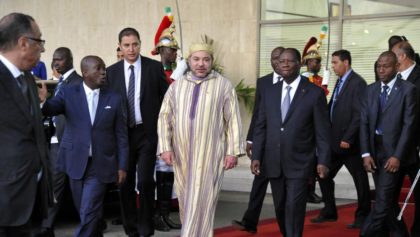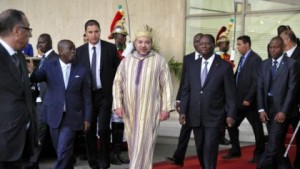Times of India
Blogs
Rudroneel Ghosh in Talking Turkey |World | TOI
In a quiet but significant development, the recent African Union (AU) summit held in the Rwandan capital of Kigali between July 17 and 19 saw the Kingdom of Morocco formally announce its intention to re-join the pan-African body. It will be recalled that Morocco had left the AU – then known as the Organisation of African Unity – 32 years ago over the grouping’s recognition of the Sahrawi Arab Democratic Republic (SADR) as a member.
It’s instructive here to revisit the history of the Moroccan Sahara (also known as Western Sahara) and the SADR. Until 1975, this patch of the Sahara was a Spanish exclave – a product of 19th century parcelling of African territories by European colonial powers. In fact, the rest of Morocco was a French protectorate till 1956. Hence, even after Morocco’s independence from France, the Moroccan Sahara remained under Spanish control.
That was until November 6, 1975 when 350,000 Moroccan citizens peacefully crossed over into the Sahara to reunite the region with the kingdom – an event that would come to be known as the Green March. For there’s no denying the historical fact that the tribes inhabiting this part of the Sahara had long sworn allegiance to the Moroccan monarch. Hence, the Green March sought to undo a historical injustice that had been wrought upon the Moroccan people by European powers.
Subsequently, the Madrid Accords of November 14, 1975 divided the Moroccan Sahara among Morocco and Mauritania. However, the latter relinquished its claim in 1979. But a Sahrawi separatist group called the Polisario Front – principally backed by Algeria – carried out an armed campaign against the Moroccan state for the establishment of an independent Sahrawi state – which we know today as SADR. In 1991 a UN-brokered ceasefire was mediated between Morocco and Polisario resulting in the creation of the United Nations Mission for the Referendum in Western Sahara (MINURSO) that was mandated to monitor the ceasefire and create conditions for a referendum. But the terms of the referendum, especially those related to identifying and registering qualified voters, were never fulfilled.
Although SADR was recognized as an AU member in 1984, the reality today is that Morocco controls most of the Moroccan Sahara. Rabat has invested heavily in development projects in this region, bringing multiple benefits to the area’s population through infrastructure and economic upgrades. Meanwhile, the Polisario has been accused of diverting humanitarian aid meant for its refugee camps. Additionally, it’s noteworthy that the SADR, despite its AU membership, is neither recognized by the UN nor by the Arab League. In fact, at least 34 African nations don’t recognize SADR today.
This is precisely why following Morocco’s formal announcement of intention to re-join the AU, 28 African nations submitted a motion to suspend SADR from the body. But even if one leaves this development aside, Morocco deserves to be reintegrated into AU for several reasons. First, over the last few years Morocco has been at the forefront of championing South-South cooperation in Africa. Under the paradigm of ‘African solutions for African problems’ the kingdom has facilitated economic partnerships with a host of sister African nations to catalyse shared prosperity. If Africa is to realize its potential as the next engine of global growth, it must learn to stand on its own feet. This is precisely what Morocco has been advocating and other African nations would do well to learn from the kingdom’s example.
Second, Morocco has also been playing a crucial role in enhancing African stability. The best example of this is the part it played in hosting rival Libyan factions for UN-backed unity talks. And as a result of those talks, a government of national unity is taking shape in Libya and slowly establishing its authority in that country. Given the chaos that had wracked Libya in the aftermath of the downfall of dictator Muammar Gaddafi, Morocco’s role in trying to ensure a semblance of Libyan stability is certainly praiseworthy.
Add to this the fact that Morocco has substantial connections with European nations and the US, and it’s easy to see how the kingdom can be a real asset for AU. Taken together, if Africa is to truly emerge as a global bright-spot – something it is poised to do – it must leave behind the baggage of the past and look to the future. And reintegrating Morocco into the AU is a crucial part of that process. Morocco has always been African. It has never lost touch with its African roots nor broken its friendship with other African nations. If anything, those relations have grown stronger over the decades. Thus, at a time when Morocco wants to come back to the AU family, the pan-African body should welcome it with open arms.








